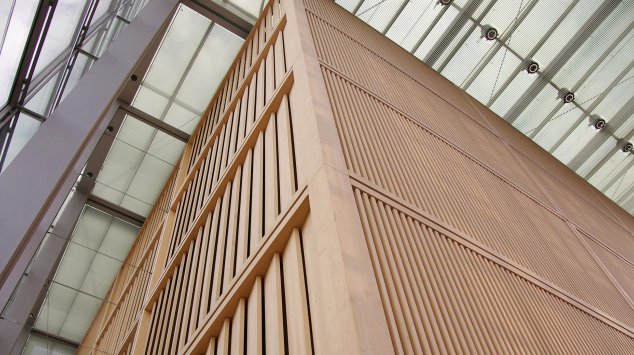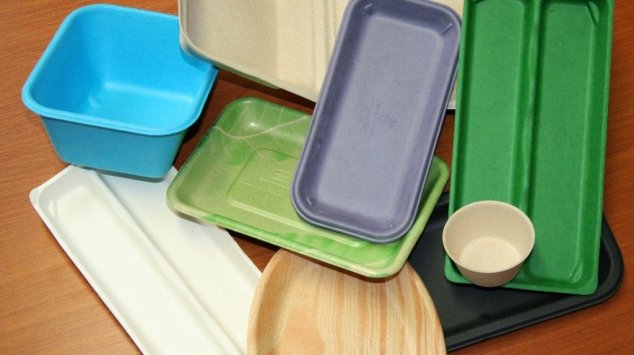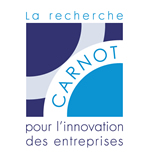Chemicals and materials
The “chemicals and materials” sector brings together the chemicals, paper-cardboard, plastics, rubber and ceramics industries. It also includes industrial bio-technologies ("white biotechnology") and the production of biofuel and biomaterials.
Carnot Institutes strongly involved
Examples of partnerships with companies in the sector
French Group Lebronze alloys commit to the health sector with new high-performance copper alloy
Partnership MICA Carnot Institute - Lebronze alloysThe MICA Carnot Institute showed and quantified scientifically the bactericidal properties of the already marketed Steriall range.
French Group Lebronze alloys commit to the health sector with new high-performance copper alloy
Supporting Innovation
Lebronze alloys have been known for quite some time for using copper, a metal acknowledged to be showing a very strong micro-organism resistance, in particular against pathogenic bacteria.
However, the effects of a real activity in terms of sanitation and health protection obtained through quantitative information using sound and thorough scientific methods must be shown to both companies and the general public.
The research teams wanted to check and evaluate in real-life situations the benefits of door equipments, handles, handrails, railings as well as thrust plates required by very demanding healthcare establishments such as: hospitals, long-term care nursing homes ()…
Whereas stainless steel, widely used in door handles, remains almost inert, the French-manufactured Steriall alloy is highly effective. It has indeed proven to reduce the risk of infection through direct contact.
copyright : Steriall
The client needs
Lebronze alloys is a key player on the metal industry. Thanks to strong growth the company invests each year several millions of Euros in R&D.The already Cu+-labelled Steriall product line has been on the market since 2012.
Nevertheless, the laboratory wanted to explore without bias the anti-bacterial qualities of the Lebronze alloy mixed metal so as to present convincing elements of the copper effects upon pathogenic factors.
Following a very first positive study with the MICA Carnot Institute in 2014, the company has renewed its partnership to measure the impact of the products in real usage situations.
The MICA Carnot Institute has put forward a two-stage evaluation protocol validated through both in vitro and in situ assessments.
BIOS* laboratory’s expertise in microbiology has enabled to bring about the much needed deliverables expected from the teams of the Eastern France-based foundry and supplying transformer.
Hence asserting Lebronze alloys’ ambition to value the beneficial aspects of their natural copper alloys for overall human health.
* Biomatériaux et inflammation en site osseux (Biomaterials and Inflammation in Bone Site)
Partnership
The MICA Carnot Institute supports innovation through its work on functional materials in the health, building and transport sectors. The Institute integrates 9 research laboratories and 8 technological resources centres based in the ‘Grand Est (Eastern France)’ region. BIOS first determined the given time necessary to kill opportunistic pathogenic agents in contact with various copper alloy touch surfaces.
The researchers then compared the microbial populations of a variety of handle types inside 5 nursing homes.
The study has confirmed that the examined bacteria have been found to survive for several months on a said support, but 90% did not by simple alloy (Steriall series) contact.
The taking methodology used made it possible for Lebronze alloys to move forward in terms of strategy against microbial resistance. It is also at the origin of a draft standard with the French Standardization Association (Association Française de Normalisation, AFNOR) on the measurement of anti-microbial activities of non-porous surfaces.
French SME Bulane takes on the challenge of generating clean fuel for welding from water and electricity
Partnership Chimie Balard Cirimat Carnot Institute - BulaneThe Chimie Balard Cirimat Carnot Institute and Bulane have been setting standards with innovative developments using hydrogen flame since 2009. Their efforts have enabled the transformation of the underlying concept into a sales mechanism for industrial companies, small businesses and craftsmen alike.
French SME Bulane takes on the challenge of generating clean fuel for welding from water and electricity
The Chimie Balard Cirimat Carnot Institute and Bulane have been setting standards with innovative developments using hydrogen flame since 2009. Their efforts have enabled the transformation of the underlying concept into a sales mechanism for industrial companies, small businesses and craftsmen alike.
Supporting Innovation
Brazing and welding processes require a fossil fuel-based source of significant heat, such as acetylene. The storage of liquid fossils fuels in an industrial setting or within the context of artisan manufacturing imposes particular constraints. It is necessary to take into consideration the entire supply logistics chain, any potential risks and implications, as well as degradation products during production. Thanks to dyomix®, an intelligent gas generator, Bulane allows to eliminate all stages for the transport of fuels, by using an Oxy-hydrogen flame through real-time monitoring of water electrolysis. Indeed, the device only requires water and an electrical connection to operate. The result is a clean, performing flame, which effectively improves operator comfort and safety. Experts in their field have recognised the device as a major technological innovation. For that matter, the project has won 2 awards in 2017: the "Gold Award of Excellence in Innovation" during the Batimat* trade show and the "Application Innovation Trophy" remitted by the regional Chamber of Commerce of Montpellier (southern France).
* International exhibition dedicated to innovations in the building, construction and architecture sector.
The client needs
Bulane sit through as early as 2009 with the idea of using hydrogen instead of fossil fuels with respect to welding applications across the industrial sector. Recognising the efforts motivating such technological breakthrough in terms of Research and Development, Bulane engages partners, including the Chimie Balard Cirimat Carnot Institute, very quickly. They do so through studies, patents and ongoing exchanges of views and rich interactions. Such co-operation made it possible to improve the conditions of the flame and energy efficiency, the development of innovative electrodes and the filing of international patents. Bulane and the Chimie Balard Cirimat Carnot Institute have demonstrated the need for such a mechanism through industrial facilities as of 2013. They have actively continued to pursue joint programmes with the objective of selling it to both the local artisans and professional market. An intense collaborative R&D has further enabled miniaturisation of the device along with the fitting of composite electrodes to a mobile piece of equipment. With its extensive portfolio of about 150 industrial systems used on a daily basis, Bulane can market a wide range of clean, efficient and secure mobile dyomix® brazing stations.
Partnership
As part of the Chimie Carnot Balard Cirimat Carnot Institute, the Charles Gerhardt Institute areas of interest include, among other subjects, solid-state and divided matter chemistry. For this reason, the AIME* team has facilitated access to its expertise in materials in addition to electrode and electrolysis design. Advanced particle/polymer composite electrodes have been jointly developed to optimise formation of hydrogen and oxygen on electrode surfaces.
The contributions were vital to deliver energy efficiency improvements in gas production. They can enable miniaturisation accordingly while increasing the power-to-weight-to-density compactness device ratio. The Carnot teams involved in the project goals since the outset have supported Bulane each and every year with the aim of taking into account the constraints of all potential buyers from the commercial and industrial enterprises. The results prove to be very positive for the SME from Southern France. Present in 11 countries already, Bulane has created 10 jobs in just 20 months and generated 100% growth in the last 12 months. As a French Tech ambassador at COP21, Bulane has additionally been recognised for its environmental practices.The French Institute for Research and Security INRS has furthermore highlighted the positive impact of Bulane’s work on working conditions.
* Aggregates, Interfaces and Materials for Energy
A new surface treatment to meet aerospace industry requirements
Partnership Chimie Balard Cirimat Carnot Institute - Mécaprotec
Supporting Innovation
The Zinc-Nickel process enables to protect against corrosion surfaces subject to high stress, particularly in the aerospace sector. The usual method, which is based on the use of products that have a high degree of toxicity, such as Cadmium and Chromium, had to be replaced for compliance with applicable international regulations. Many years of research have been necessary to develop a new type of environmentally-friendly electrolyte. Mécaprotec today is in possession of a unique process recognised by leading aircraft manufacturers worldwide where the benefits compel for competitive advantage and revenue increase.
The client needs
Mécaprotec Industries is a Toulouse-based medium-sized business of 400 employees facing fierce competition and growing demand from manufacturers. Committed very early to a programme of environmentally-friendly improvements, Mécaprotec Industries have developed from a supply-based business to a proactive-based ‘prescriber-advisor’ [OU from an executor to an experienced innovator]. By soliciting a Research partner Mécaprotec has succeeded in developing its own exclusive process, opening access to foreign markets while meeting the highest standards of the most demanding industries. Beyond the commercial dimension and the posting of regular growth in revenues Mécaprotec continues to collaborate with Research centres, thus ensuring successful strategy in terms of, innovation combined with the flexibility and responsiveness of a human scale company.
Partnership
The Toulouse-based Inter-university Material Research and Engineering Centre (Centre Inter-universitaire de Recherche et d'Ingénierie des Matériaux, Cirimat) is part of the Chimie Balard Cirimat Carnot Institute. Its team of researchers work on the design, development, characterisation and study of basic physical-chemical properties and other ceramic, metal or polymeric materials in usable conditions. Cirimat contributions to the Zinc-Nickel process development has been essential for determining the new electrolyte formulation without altering the resistance characteristics treatment. A key to successful Research and knowledge transfer, yet another example of the Carnot Institute’s commitment to its local industrial partners on a large variety of skills and tools.




